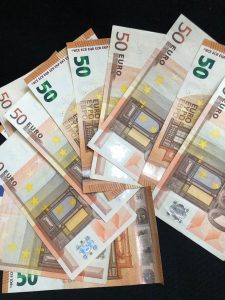Forex or foreign exchange market is the largest financial market in the world, with a daily turnover of over $5 trillion. The forex market is a decentralized and over-the-counter market, meaning that it is not traded on a centralized exchange. Instead, it operates through a global network of banks, financial institutions, and individual traders.
The forex market is open 24 hours a day, five days a week, and offers traders the opportunity to trade in a range of currency pairs. Traders can buy or sell currencies based on their expectations of the market movements. In this article, we will explore who trades the forex market and why.
Banks and Financial Institutions
Banks and financial institutions are the primary players in the forex market. They trade currencies on behalf of their clients, including individuals, corporations, and governments. Banks and financial institutions provide liquidity to the market, ensuring that there is always a buyer or a seller for any currency pair.
Central Banks
Central banks also play a significant role in the forex market. They use the forex market to manage their country’s currency reserves and exchange rates. Central banks can intervene in the forex market by buying or selling currencies to influence exchange rates. For example, the Federal Reserve in the United States may intervene in the forex market to support the value of the US dollar.
Hedge Funds
Hedge funds are investment funds that use various investment strategies to generate returns. They are one of the largest participants in the forex market, trading currencies to hedge against other investments or to generate profits. Hedge funds use leverage to increase their exposure to the market, which can result in significant profits or losses.
Individual Traders
Individual traders, also known as retail traders, are another group of participants in the forex market. They trade currencies as a hobby or to generate additional income. Individual traders can access the forex market through online brokers, who offer trading platforms and access to the market.
Retail traders can trade currencies using leverage, which means that they can control a larger position than their account balance would allow. While leverage can amplify profits, it can also increase losses. Retail traders should exercise caution when using leverage and should always have a risk management strategy in place.
Why Trade the Forex Market?
There are several reasons why individuals and institutions trade the forex market. Some of the main reasons include:
– Profit Potential: The forex market offers traders the opportunity to generate significant profits through currency price movements.
– Liquidity: The forex market is the most liquid market in the world, with high trading volumes and tight bid-ask spreads.
– Diversification: Trading forex can provide diversification benefits to an investment portfolio, as it is not correlated with other asset classes such as stocks and bonds.
– Global Market: The forex market operates 24 hours a day, five days a week, providing traders with access to global markets and events.
– Leverage: The ability to use leverage allows traders to control larger positions than their account balance would allow, which can amplify profits.
Conclusion
The forex market is a global market that is open to a range of participants, including banks, financial institutions, central banks, hedge funds, and individual traders. The market offers traders the opportunity to generate significant profits, diversify their portfolio, and access global markets. However, trading forex also involves risks, and traders should always exercise caution and have a risk management strategy in place.





